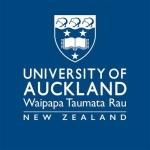Nuclear user-pays advocate takes his message to the US
A University of Auckland graduate student will discuss his proposed nuclear user-pays model at a US meeting of nuclear experts in Washington DC.
Lyndon Burford, a PhD candidate in political studies, won the prestigious Doreen and Jim McElvany 2011 Nonproliferation Challenge essay competition with his model for funding nuclear risk mitigation. The other winning entry was by American Professor John Krige from the Georgia Institute of Technology.
Lyndon will present his arguments at The James Martin Center for Nonproliferation Studies, a world-leading research centre for nuclear issues, in Washington DC and Monterey, California. His essay will also be published in the Center’s flagship journal, The Nonproliferation Review, reaching an international audience.
Lyndon’s essay, “No Such Thing as a Free Lunch: A ‘Nuclear User Pays’ Model of International Security,” proposes an innovative new way to fund efforts to mitigate the risks posed by nuclear weapons and nuclear energy.
Lyndon critiques the arbitrary nature of the current funding system, underpinned by a UN Security Council Resolution obliging all UN members to take active steps to prevent the spread of nuclear weapons and weapons technology, particularly to terrorist groups.
“It’s unjust to say a country like Samoa has to invest time and money in global efforts preventing nuclear trafficking and terrorism, when they are not developing, using or trading in nuclear technologies. The solution has to be a transparent, equitable system that would see nuclear states and corporations take financial responsibility for the mitigation of nuclear risks they create.”
Lyndon says nuclear threats including nuclear war, meltdowns, radiation releases, or nuclear terrorism are very real and extremely serious. However the current, arbitrary funding system is seen by many non-nuclear countries as discriminatory. This undermines political will for these countries to engage in nuclear control efforts.
“User-pays models are increasingly prevalent globally in areas such as health, education, and transport. It seems incongruous that the same standards of individual responsibility are not applied to nuclear countries and corporations whose activities generate national or private benefits, but international risks.”
Lyndon argues a nuclear user-pays model would encourage nuclear states and corporations to reduce the risks associated with their activities, lead non-nuclear states to view risk mitigation programmes with increased legitimacy, strengthen nuclear non-proliferation, and progressively devalue nuclear weapons.
“New Zealand has a small but expert community of specialists working on nuclear issues. This is a great way of raising the profile of the innovative work they do.”
The James Martin Center for Nonproliferation Studies works to combat the spread of nuclear, chemical, and biological weapons. It is the largest NGO in the United States devoted exclusively to research and training on nonproliferation issues.
